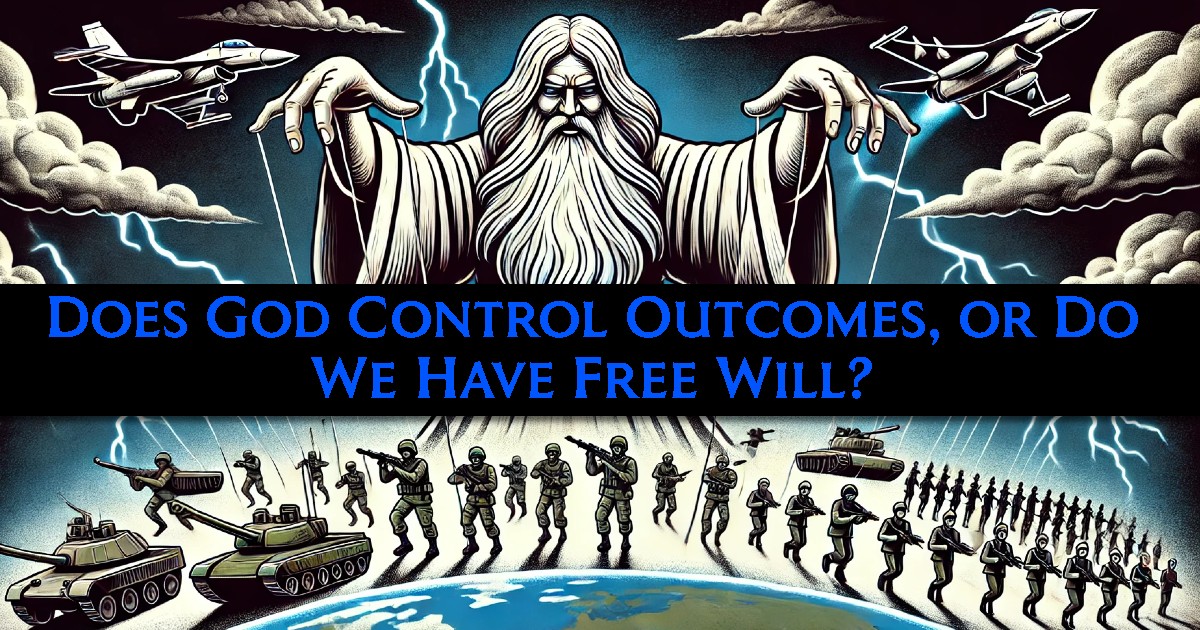Some believe God is like the Dungeon Master of the universe, setting the rules, designing the challenges, and knowing every possible outcome. This idea, often linked to theological determinism, suggests that if God is all-knowing (omniscient) and all-powerful (omnipotent), then He already knows the choices we’ll make before we make them.
Bible verses like Isaiah 46:10
(“I make known the end from the beginning… My purpose will stand, and I will do all that I please.”)
suggest that God has already mapped out the entire storyline. So, that moment you tripped on the sidewalk? Predestined. The time you lost your keys only to find them in the fridge? Part of the plan.
But does this mean we’re all just characters in a divine novel, flipping through pages we don’t control?
The Case for Free Will: Choose Your Own Adventure
Others argue that God, in His infinite wisdom, gave us the ability to choose—because what’s love or faith without the option to reject it? Free will theology suggests that God may know all possible outcomes, but He doesn’t dictate which one we pick.
Consider Deuteronomy 30:19: “I have set before you life and death, blessings and curses. Now choose life, so that you and your children may live.” This seems to suggest we are active players in our own fate. If God was micromanaging every move, would we really need to “choose” anything?
It’s the divine equivalent of a parent watching their child learn to ride a bike—sometimes they step in, sometimes they let go, hoping we don’t steer straight into a bush.

The Contradiction of Free Will and an Omniscient God
Christianity tries to claim that humans have free will while also insisting that God’s plan is inevitable. But these two ideas cannot coexist logically. If God knows everything in advance, then the future is already determined. If God directly intervenes to change human decisions, then people are not actually free to choose. The concept of free will only makes sense in a universe where choices are truly open—not one where a deity already knows and manipulates the outcome.
If we are nothing more than puppets acting out a script that has already been written, then moral responsibility is meaningless. How can humans be blamed for “sin” if their actions were always part of God’s plan? How can believers say they “chose” to follow God when their salvation or damnation was predetermined?
Comforting illusion or no Divine Intervention
If the Bible is true, then free will does not exist. A God who hardens hearts (Exodus 9:12), predestines events (Romans 8:29-30), and directly intervenes in human decisions (1 Samuel 10:9) negates genuine choice. Yet, if divine intervention were real, we would expect consistent, verifiable evidence of God altering human affairs—miracles defying natural law, prayers reliably influencing outcomes, or divine justice manifesting unmistakably. Instead, studies on prayer efficacy show no measurable impact beyond placebo effects, and history unfolds with the same randomness and human agency expected in a world without supernatural control. Free will remains a comforting illusion within theology, but the absence of divine interference suggests that human decisions are shaped by nature, culture, and psychology—not by an omnipotent hand.
Compatibilism (Free Will & Determinism Can Coexist)
- Dennett, D. (1984) – Elbow Room: Argues that the kind of free will worth having is compatible with determinism.
- Fischer, J. (1994) – The Metaphysics of Free Will: Examines moral responsibility under determinism.
Libertarianism (True Free Will Exists Independently of Determinism)
- Kane, R. (1996) – The Significance of Free Will: Defends libertarian free will through “ultimate responsibility.”
- O’Connor, T. (2000) – Persons and Causes: Argues that free will is independent of deterministic causation.
Hard Determinism & Illusionism (Free Will is an Illusion)
- Pereboom, D. (2001) – Living Without Free Will: Argues that we don’t need free will for moral responsibility.
- Harris, S. (2012) – Free Will: Claims neuroscience disproves free will, making it an illusion.

